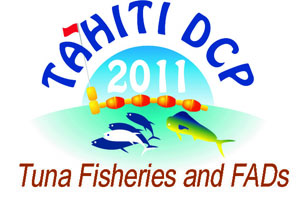Towards sustainable FAD fishery in the WIO region. Efforts and milestones explored
1 : Kenya Marine and Fisheries Research Institute
(KMFRI)
P.O. Box 81651-80100, Mombasa, Kenya -
Kenya
2 : Rhodes University
(RU)
* : Corresponding author
P.O. Box 94, Grahamstown, 6140, South Africa -
Afrique du Sud
Due to the ongoing malthusian overfishing and degradation of near shore coastal areas, efforts to overcome it have been increasingly coming under the spot light with numerous calls and support for a paradigm shift in resource exploitation strategies. The question has become not one of “do we need a change in exploitation philosophy” but rather one of “what new approach to resource exploitation is most appropriate”? It is within this context that a major World Bank collaborative research project dubbed South West Indian Ocean Fisheries Project (SWIOFP) focused on development of FAD fishery programs in all the nine SWIO countries. Fish behavioral studies through acoustic tagging have been emphasized as part of the research around these FADs. In this regard, a framework based on, and in compliance with, the needs of the various countries is presented.

 PDF version
PDF version
